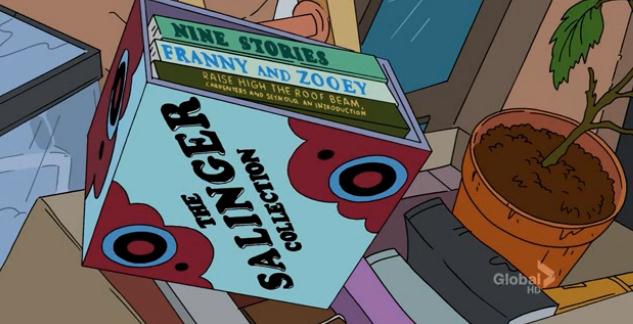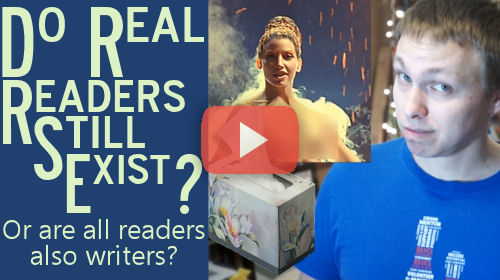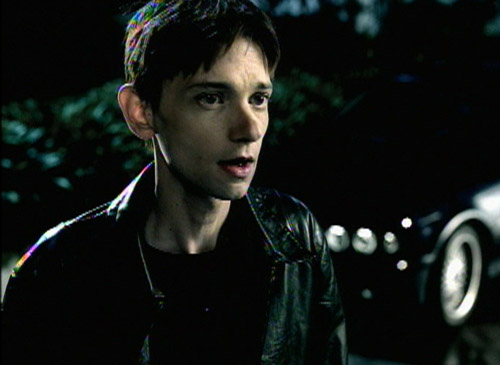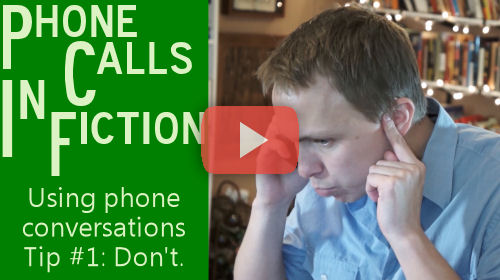(part of my ongoing Unexpected Literary References series) It's no secret that Catcher in the Rye is J.D Salinger's most famous work. So, I suppose The Simpsons doesn't so much insult Salinger as it does simply remind people that Salinger was important at one time, for one book. In this, Season 22 Episode 16 episode called "A Midsummer’s Nice Dream" (the title itself a literary reference) Marge discovers "A box set of all of J.D Salinger's novels except Catcher in the Rye" among a pile of garbage that once belonged to the town hoarder, implying that only a crazy hoarder would actually keep copies of these "other" books.
Posts By Caleb J. Ross
Getting a signed copy of a book isn’t always easy. Though, sometimes, it’s incredibly easy. Behold, another unscripted account of how I managed to get a copy of a book signed by its author. In this episode, I discuss the long, arduous path to acquiring a signature by Caleb J. Ross.
I have three questions for you? Do people read without an ulterior motive anymore? What is so alluring about writing? Are you a reader, sans the writer motivation, willing to Skype about it? NaNoWriMo this year has made me realize just how rare the reader is becoming. It seems every reader out there also wants to be a writer. As a writer, this of course concerns me. What happens if the only market for a product is also the creator of the product? Watch the video below as I ask and explore these questions. Be sure to SUBSCRIBE to my YouTube Channel to keep updated on all videos. I release about two videos per week.
Am I the Next Big Thing? Up-front honesty: no, I'm not the Next Big Thing. However, I have been asked by Richard Thomas to be a part of this blog Q&A thing called The Next Big Thing. I'd explain what The Next Big Thing blog Q&A is, but really, little explanation is needed. I was asked the following questions, and in turn, I will ask the following questions of a new group of writers (listed below the responses). On to the self-indulgence. What is the working title of your next book? Technically, it’s Stranger Will, due out January 16th 2013, but that’s a re-release of a novel. As for unpublished work, I’m working on two: The Synapse and The Bettors; I promise neither title will stay, as they both follow an unfulfilled [definite article] [vague noun] pattern that should probably be reserved only for terrible magazine rack thrillers. Where did the idea come…
No matter the reality, books feel to most of us like the last bastion of commercially untouched culture available to us. We see product placements in every TV show and movie, and ads occupying every inch of livable off-screen space, but books seem to be pretty much ignored by advertisers. Why is this? I’ve been hired by Caleb J. Ross Enterprises to explore this question. Oh, and for all of your enterprising needs, call on Caleb J. Ross Enterprises: “Enterprising Since Even Before Star Trek.” Mentioned in the video: Unexpected Literary References blog category: https://calebjross.com/category/lit-references/
Phone conversations rarely work in stories. Why is that? The most common reason I’ve discovered is that it’s simply too easy; a reader is smart enough to know that the author is generally taking the easy way out of a weak plot. But, if you must include a phone call in a story, there are some basic things to keep in mind.
It’s a gift, to see perversion in the uncorrupted. I bring you episode #3 in my Easily Perverted Book Covers series, wherein I manipulate existing book covers to my mind’s disturbed whims. Watch me as I contort Stiff by Mary Roach, Commonwealth by Joey Goebel, Mop Men by Alan Emmins, and The Girl in the Flammable Skirt by Aimee Bender. Fair warning: impending hilarity.







